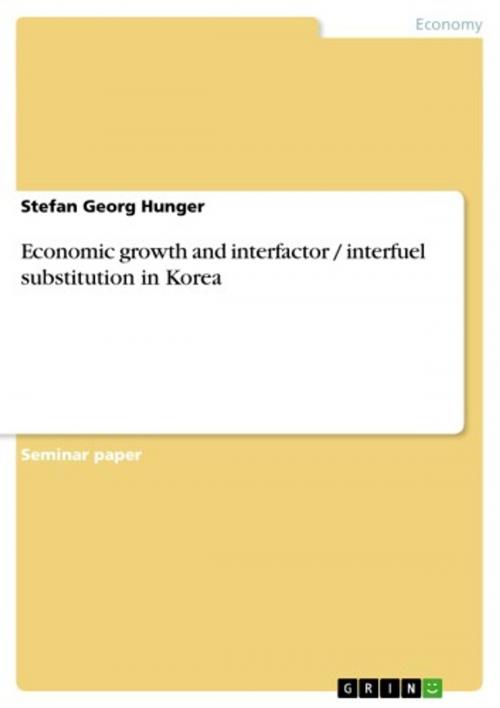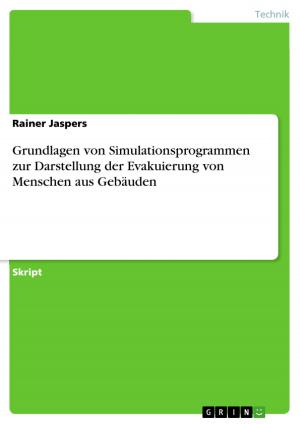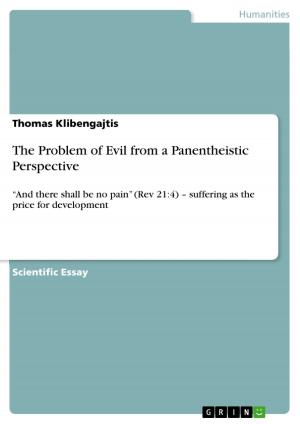Economic growth and interfactor / interfuel substitution in Korea
Business & Finance, Industries & Professions, Industries| Author: | Stefan Georg Hunger | ISBN: | 9783638423472 |
| Publisher: | GRIN Verlag | Publication: | October 3, 2005 |
| Imprint: | GRIN Verlag | Language: | English |
| Author: | Stefan Georg Hunger |
| ISBN: | 9783638423472 |
| Publisher: | GRIN Verlag |
| Publication: | October 3, 2005 |
| Imprint: | GRIN Verlag |
| Language: | English |
Seminar paper from the year 2005 in the subject Business economics - Industrial Management, grade: Very Good (Sehr Gut), University of Vienna, course: International Energy Management, 10 entries in the bibliography, language: English, abstract: South Korea, the Asian peninsula of Manchuria separating the Yellow Sea and the Sea of Japan, once known to be one of the world's poorest agrarian societies, has undertaken economic development since 1962 what has become known as the 'economic miracle on the Hangang River'. Nevertheless, Korea's remarkable economic achievements were threatened by the Asian crisis beginning in late 1997 when the Asian tiger nations suffered from overvalued currencies and a lack of regulation in the financial system led to business incest, inflated asset values, high foreign debt and many other problems. But thanks to successful foreign debt restructuring with creditor banks, the nation is currently on track to resume economic growth. 'Korea's macroeconomic performance since the crisis has been impressive, with strong real growth, low inflation, and rapidly growing official foreign reserves.' Furthermore, since the onset of the crisis, Korea has been rapidly integrating itself into the world economy. To visualize this performance Figure 1 shows the impressive economic development of Korea since 1980 and displays the differences in growth to Taiwan and Austria. With this history as one of the fastest growing economies in the world, Korea is working to become the focal point of a powerful Asian economic bloc. As a result of this overwhelming development within the last two decades, the Korean economy, as well as many other representative developing countries, has experienced both a dramatic increase in oil consumption and an upward shift in wage rates. From a general scientific point of view the relationship between energy consumption and economic growth has been the subject of intense research over the past three decades. However, the empirical evidence is ambiguous. Although numerous studies including all different parts of the world into their analysis have investigated the causal relationship between economic development and energy consumption, it is still hard to say that findings from these studies have reached an overall consensus. However, following a recent study from Wankeun Oh from the Department of Economics at the Hankuk University of Foreign Studies in Seoul, 'the empirical results for the case of Korea suggest the existence of a long run bidirectional causal relationship between energy and GDP'.
Seminar paper from the year 2005 in the subject Business economics - Industrial Management, grade: Very Good (Sehr Gut), University of Vienna, course: International Energy Management, 10 entries in the bibliography, language: English, abstract: South Korea, the Asian peninsula of Manchuria separating the Yellow Sea and the Sea of Japan, once known to be one of the world's poorest agrarian societies, has undertaken economic development since 1962 what has become known as the 'economic miracle on the Hangang River'. Nevertheless, Korea's remarkable economic achievements were threatened by the Asian crisis beginning in late 1997 when the Asian tiger nations suffered from overvalued currencies and a lack of regulation in the financial system led to business incest, inflated asset values, high foreign debt and many other problems. But thanks to successful foreign debt restructuring with creditor banks, the nation is currently on track to resume economic growth. 'Korea's macroeconomic performance since the crisis has been impressive, with strong real growth, low inflation, and rapidly growing official foreign reserves.' Furthermore, since the onset of the crisis, Korea has been rapidly integrating itself into the world economy. To visualize this performance Figure 1 shows the impressive economic development of Korea since 1980 and displays the differences in growth to Taiwan and Austria. With this history as one of the fastest growing economies in the world, Korea is working to become the focal point of a powerful Asian economic bloc. As a result of this overwhelming development within the last two decades, the Korean economy, as well as many other representative developing countries, has experienced both a dramatic increase in oil consumption and an upward shift in wage rates. From a general scientific point of view the relationship between energy consumption and economic growth has been the subject of intense research over the past three decades. However, the empirical evidence is ambiguous. Although numerous studies including all different parts of the world into their analysis have investigated the causal relationship between economic development and energy consumption, it is still hard to say that findings from these studies have reached an overall consensus. However, following a recent study from Wankeun Oh from the Department of Economics at the Hankuk University of Foreign Studies in Seoul, 'the empirical results for the case of Korea suggest the existence of a long run bidirectional causal relationship between energy and GDP'.















